Find out the best pet birds for beginners that are friendly and easy to care for. Find your perfect feathered companion today! Welcoming a pet bird into your life can be an immensely rewarding experience. They infuse your house with song, color, and a certain kind of avian appeal. But if you’re just dipping your toes into the vast world of aviculture, choosing the right feathered friend can seem daunting. With so many species and personalities to consider, it’s important to find a bird that matches not only your lifestyle but also your experience level. This comprehensive guide is designed to help budding bird enthusiasts discover the perfect pet bird for beginners and set them up for a successful avian adventure.
Understanding Your Responsibilities
Before you take flight into the world of owning a pet bird, it’s essential to understand the commitment involved. Unlike cats and dogs, birds have a unique set of needs that require specialized knowledge and care. From the time you invest in socializing with your new companion to the financial responsibilities of maintaining its health and well-being, pet bird ownership is a commitment not to be taken lightly.
The Charm of Companion Birds
Birds’ beauty, intellect, and singing talent have enthralled people for generations. Today, the tradition of keeping birds as pets remains strong. From the regal cockatoo to the modest budgerigar, each feathered creature offers a distinct allure. That being said, not all birds are equally easy to care for, particularly for novices.
Characteristics of Beginner-Friendly Birds
A beginner-friendly bird should be easy to care for, yet still engaging and sociable. These birds are typically hardy, adaptable, and forgiving of the occasional beginner mistake. They offer the perfect introduction to the joys of avian companionship without overwhelming the new owner with complex care requirements.
Low Maintenance Requirements
The ideal pet bird for a novice should not be high-maintenance. This doesn’t mean they won’t require dedicated care, but they should be less demanding in terms of grooming needs, socialization, and health care than more advanced species
Friendly & Social Nature
Birds that enjoy interaction and social bonding are perfect for beginners, particularly those who are looking for a pet to engage with daily. Social birds can become trusting and affectionate with their owners, forging deep and rewarding relationships.
Adaptability to Different Environments
Some birds are more adaptable than others, and a bird that is more versatile and less prone to stress from environmental changes will make for a smoother transition into your home.
Best 5 Pet Bird for Beginners
Now that we understand what to look for, it’s time to reveal the top choices for bird enthusiasts just starting their feather collection. Each of these birds offers a unique set of qualities that are sure to delight and satisfy their new flock leaders.
1. Budgerigar (Budgie)
Description: Budgies, the quintessential starter bird, are small parrot species known for their vibrant plumes and playful personalities. Originating from Australia, they have been tamed for more than a hundred years.
Care Tips: Budgies require a balanced diet of seeds, grains, and fresh produce. They are highly energetic and need plenty of toys for mental stimulation. They have a maximum 15-year lifespan if given the right care. Interacting with people and fellow budgies is crucial for their emotional well-being.
Personality: Friendly and approachable, budgies form strong bonds with their owners and can even be taught to mimic speech and sounds. Along with their passion of flying, they are renowned for their acrobatic performances.
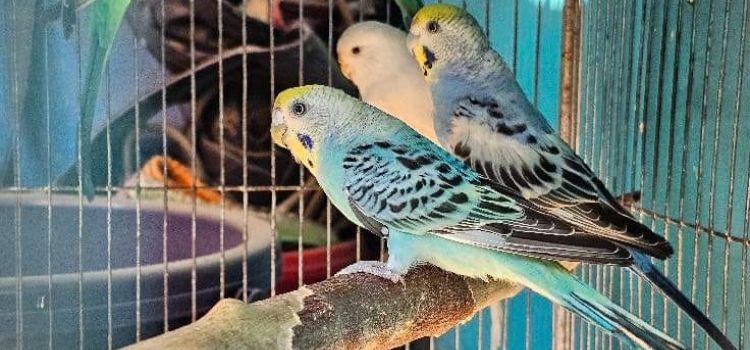
2. Cockatiel
Description: Cockatiels are beloved for their expressive crests, graceful demeanor, and melodious whistling. As the smallest members of the cockatoo family, they originated from Australia’s dry areas.
Care Tips: Cockatiels have a diverse diet that includes formulated pellets, a small amount of seeds, and daily servings of fresh fruit and vegetables. They are intelligent and thrive on interactive play and training.
Personality: Playful and affectionate, cockatiels often bond closely with their humans. They are highly curious and often follow their favorite person about the home. They also like to sing and whistle.
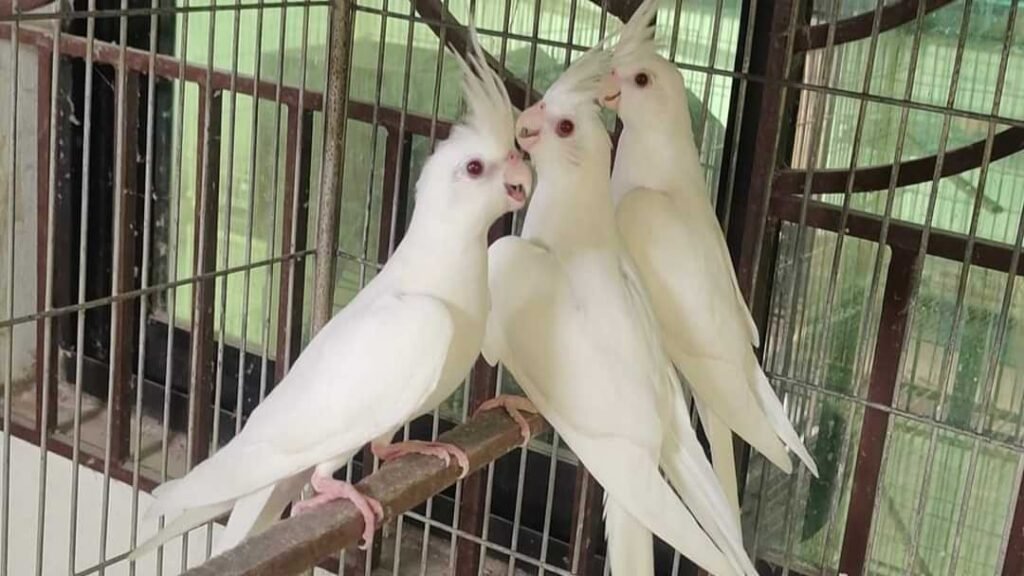
3. Lovebird
Description: Lovebirds are native to the African continent and are known for their propensity to bond strongly, sometimes monogamously, with their chosen mate.
Care Tips: Lovebirds need a varied diet of seeds, fruits, and vegetables and can live for up to 20 years. Due to their high level of activity, these birds need a large cage filled with toys to keep them happy.
Personality: Lovebirds are little in height, but they have enormous personalities and may be quite talkative. They love interacting with others and are vivacious and affectionate. However, they may be more territorial than the previously mentioned species, so handling them gently and regularly from a young age is important.
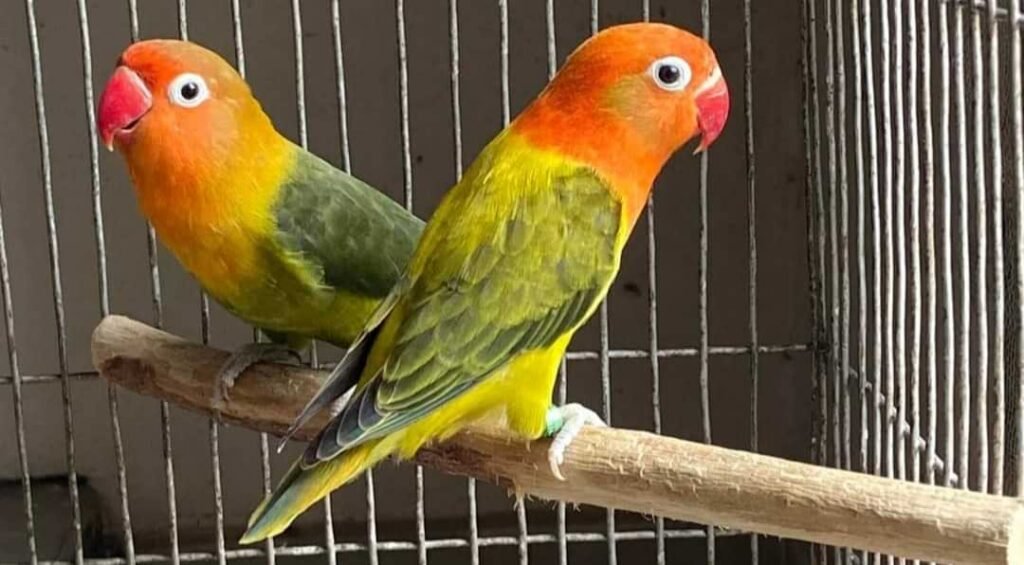
4. Canary
Description: These tiny song experts bring happy melodies to your home and are delightful to see as they groom, eat, and move between branches. The optimal housing situation for male canaries is to be kept alone. It is possible to live with a male and female together.
Care Tips: Because of their small size, they are not ideal for holding or cuddling, but are perfect for beginners who want a visually appealing bird to observe in a fancy cage for the next 20 to 25 years in a bedroom or living room.
Personality: Canaries are found in traditional yellow color and a variety of other hues like brown, white, green and pale yellow.
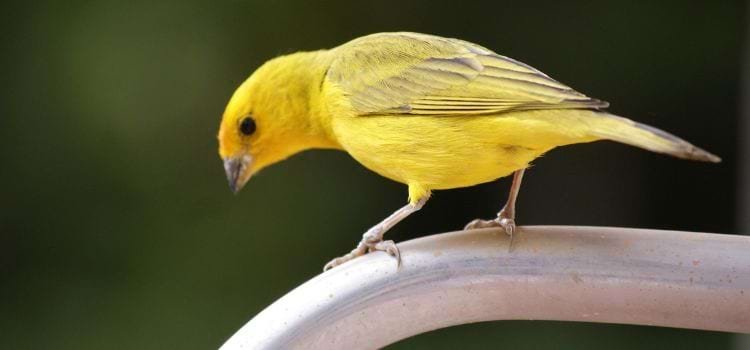
5. Finch
Description: These small birds are tinier than canaries and enjoy chattering throughout the day with unique sounds and tunes.
Care Tips: Small flocks of finches housed in a medium-sized cage with plenty of branches, a bamboo nest, and feeding/watering stations—all available in a multitude of colors. Finch cages usually hang from the ceiling or shown as talking points in front of a house.
Personality: Finches are meant to be appreciated, not touched or interacted with, making them ideal companions for seniors or families looking to bring a bit of the natural world into their homes. Finches make an ideal beginner bird for those curious about having feathered companions due to their brief 5-year lifespan.
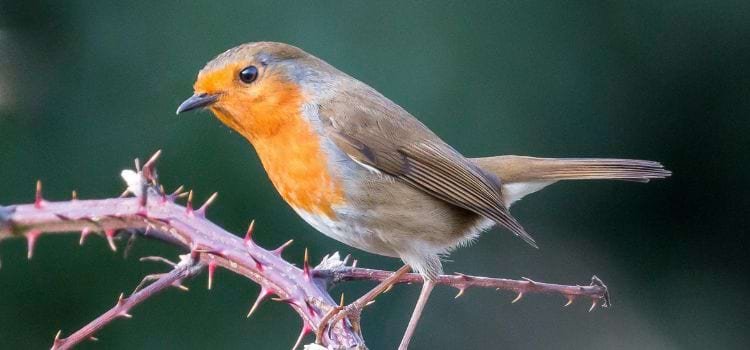
Choosing the Right Bird for You
While the recommended bird species are excellent starting points, there are several key factors to consider when making your choice. Each bird is an individual, and your new pet’s personality and needs will play a significant role in the mutual enjoyment you’ll get from the relationship.
Space
Different birds require different levels of living space. Budgies are small and can thrive in a moderate-sized cage, whereas cockatiels and lovebirds need larger areas to spread their wings. Think about how much room you have in your house for the habitat of your bird.
Noise Level
All birds vocalize, but some are more talkative than others. If you live in a small apartment or have neighbors in close proximity, a quieter species like the budgerigar may be a more considerate choice.
Time Commitment
Caring for a pet bird is a long-term commitment. They are long-living, gregarious animals that get great pleasure from social connection. Be ready to commit many hours a day to their upkeep, which includes socializing, training, and time spent outside of the cage.
Tips for Caring for Your New Bird
When you bring a pet bird into your home, it becomes part of your family. Ensuring its health and happiness requires knowledge, patience, and love. These are some vital pointers for taking care of your just acquired feathery friend.
Appropriate Nutrition and Diet
For every pet bird, a balanced diet is the cornerstone of excellent health. High-quality pellets should make up the bulk of their diet, supplemented with a variety of fresh fruits, vegetables, and the occasional healthy seed treat. Keep in mind that each species has different nutritional needs, so it’s important to research or consult with a veterinarian to ensure you’re meeting those needs.
Cage Setup & Enrichment
Your bird’s cage is its sanctuary, so it’s important to make it as comfortable and stimulating as possible. The cage should be large enough for your bird to extend its wings fully, with plenty of room for toys, perches of varying sizes and textures, and space to move about freely. Rotating toys and changing the cage layout periodically can prevent boredom.
Socialization & Training
Spending time with your bird is not only enjoyable but also crucial for its mental and emotional well-being. Daily interactions, such as talking, whistling, and handling, will help your bird feel part of the family. Positive reinforcement training can also be a fun way to bond and teach your bird to display its natural behaviors in a controlled manner.
Medical & Veterinary Services
Resolving health difficulties requires early identification.. Regular check-ups with an avian veterinarian and vigilance for signs of illness, such as changes in behavior, appetite, or appearance, are important. Since birds are experts at disguising symptoms of sickness, any departure from the usual needs to be investigated.
Environmental Requirements
Giving your pet bird a secure and engaging habitat is crucial. This includes regulating the temperature and humidity in their living space, providing natural sunlight or full-spectrum lighting, and ensuring that their surroundings are free of potential hazards.
Temperature Control
Birds are temperature-sensitive creatures. Avoid placing their cage near drafty windows or heating vents. In colder months, you may need to provide a bird-safe heating source, such as a ceramic heat emitter, to maintain an appropriate temperature.
Humidity Levels
Maintaining proper humidity levels, particularly for species that require higher humidity, is critical for respiratory health. Humidifiers can be used to increase humidity, especially in drier climates.
Lighting
Birds must be exposed to full-spectrum illumination or natural sunshine in order to synthesize vitamin D, which is essential for healthy bones and general wellbeing. Make sure your bird gets enough light each day—at least for the suggested duration.
Noise Level & Adaptability
Every bird has its own voice, quite literally. Some species are more vocal than others, which might not be suitable for those who prefer a quieter home environment. Additionally, consider how adaptable a bird is to different lifestyles. For example, some birds may be more comfortable in a single-person household, while others may thrive in a bustling family setting.
Owning a pet bird can be a rich and fulfilling experience for anyone, especially for beginners looking to establish a meaningful connection with nature. The right bird will enrich your life in countless ways, adding a new dimension to your daily routine and creating lasting memories. You may make a decision that fits your preferences and lifestyle by being aware of the unique requirements and traits of various bird species. As a bird owner, are you prepared to extend your wings? Start by considering the recommendations highlighted in this guide and prepare for a delightful adventure with your new, delightful friend.
Instead, let’s encourage the reader to share their experiences with pet birds and continue learning about avian care and behavior. Every bird is unique, so there is always more to discover! Let’s also remind them that responsible pet ownership includes providing love, attention, and proper care for their feathered companion. And most importantly, enjoy the journey of being a pet bird owner and the special bond that you will form with your new friend. Following this guideline, you can easily select the best pet bird for beginners.
So, whether it’s a budgie, cockatiel, lovebird, or any other species, may your home be filled with the joyful chirps and beautiful colors of these wonderful creatures. Happy birding!
**mind vault**
mind vault is a premium cognitive support formula created for adults 45+. It’s thoughtfully designed to help maintain clear thinking
**breathe**
breathe is a plant-powered tincture crafted to promote lung performance and enhance your breathing quality.